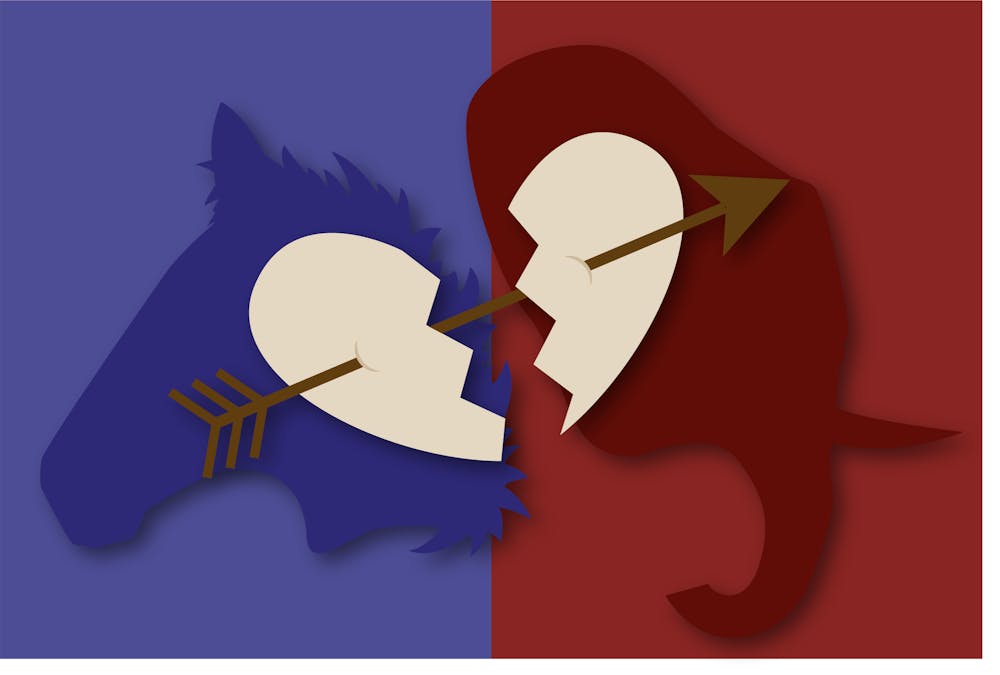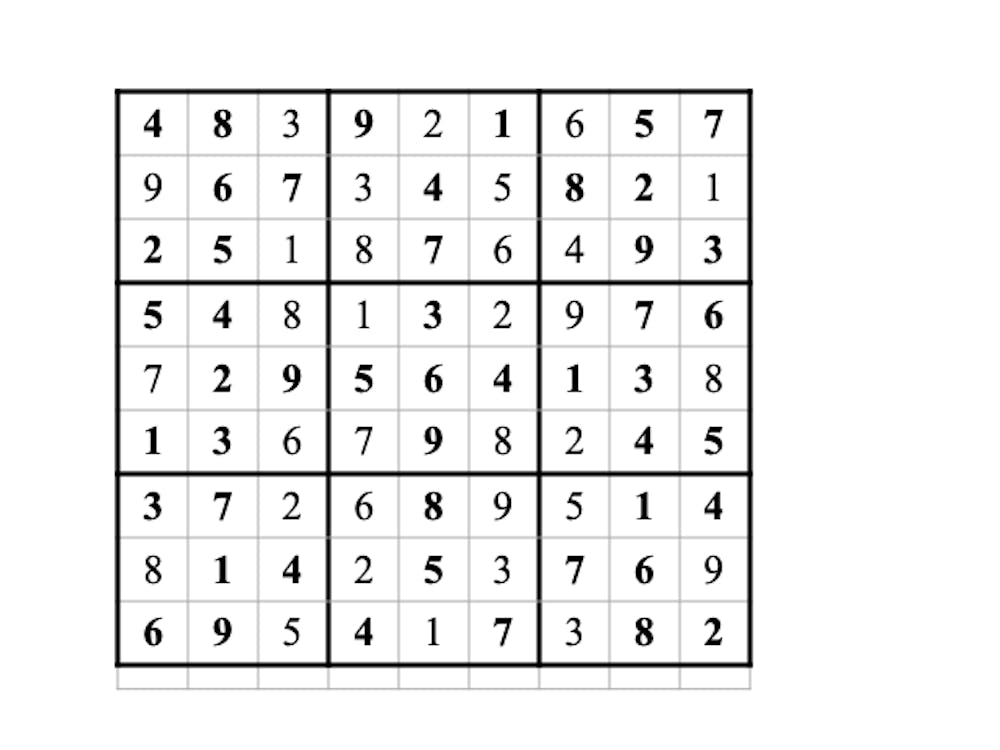When Maddy Jones, a first-year kinesiology major, started to disagree with the boy she was interested in over politics, she ghosted him.
“He said something I didn’t agree with, and I was like, ‘Wait, hold on,’” Jones said.
Jones identifies with a more liberal ideology, while the boy she was talking to tended to lean more conservative. She said she would be open to date someone who holds conservative values, but it's not what she’s explicitly seeking out.
Her story is reflective of a larger trend in the Gen Z political climate: growing gender gaps.
According to the Public Religion Research Institute, women aged 18-29 are more likely to identify as liberal than men aged 18-29, and less likely to identify as conservative (37% to 28% and 22% to 29%, respectively).
Anne Whitesell, a professor in Miami’s political science department, said that while a gender gap has existed for a long time, it’s been exacerbated by other issues like polarization.
Enjoy what you're reading?
Signup for our newsletter
“There’s been a gender gap since at least the ’80s,” Whitesell said. “Typically, the trends have been that women are often more politically liberal, and then men are more conservative than women; but because just as a whole, we're moving further apart, then the gender gap would also be [moving] further apart.”
This growing gap can make dating across the aisle more difficult.
Pew Research Center found that 71% of single people who identify as or lean toward Democrats probably or definitely would not date someone who voted for Trump in the 2016 election.
Riley Clary, a first-year supply chain and operations management major, said dating within your ideology allows you to make a connection on issues that are important to you.
“It feels like you’re understood more on your beliefs when [people you want to date] believe the same things as you, because then you feel like you can have an open conversation about how you feel,” Clary said. “Politics are really important, especially in today's society.”
Clary identifies as left-leaning and said the 2024 election was “eye-opening,” especially because she didn’t talk about politics in high school.
Drew Belcher, Chairman of College Republicans at Miami and senior political science major, identifies as a “traditional conservative.”
He said that agreeing on faith and morals is more important than agreeing on politics, but that unified views help.
“If you don’t agree on the most fundamental values, I don’t think you can have a strong household,” Belcher said.
He said he’s more concerned about how the gender gap and polarization in politics will affect the traditional family unit.
“I think [the gender divide] is a very bad thing for the country. I think it’s going to have some huge effects on dating life and the culture around that,” Belcher said. “I’m a little scared there might be a crisis where people aren’t dating, people aren’t having kids, and there’s a number of factors that go into that, but one of them is the gender gap.”
Whitesell said polarization suggests we are moving farther apart, which makes it harder to compromise.
“What we also find is that there becomes an us-versus-them mentality,” Whitesell said. “Like this team versus my team, and that then has spillover effects when you're talking about social relationships.”
The “spillover” can even be seen in pop culture. In Netflix’s Love Is Blind, two contestants broke it off due to political differences. In both cases, the gender gap assumptions were true.
Of course, for every time the gender gap holds up, there are cases in which it doesn’t.
Rachael Hawley, a first-year speech pathology and audiology major, said she identifies as right-leaning and is looking for a conservative partner.
Elise VanHimbergen, a first-year majoring in business analytics, also identified as conservative, but said that politics don’t matter to her “as long as it doesn’t cause any conflicts.”
Whitesell said that while the growing gender gap is an overall trend, seeing it play out is much more nuanced.
“The important thing to remember, though, is for both men and women, you really need to break it down further than that,” Whitesell said. “So you need to look at things like race or age or class, because there's a lot of variation within that when you're looking at how people vote.”
Beyond the gender gap, there are some students who just don’t care.
Out of 13 people interviewed, five simply said they don’t know enough about politics to comment, and that it mattered zero percent what affiliation their partners were.




